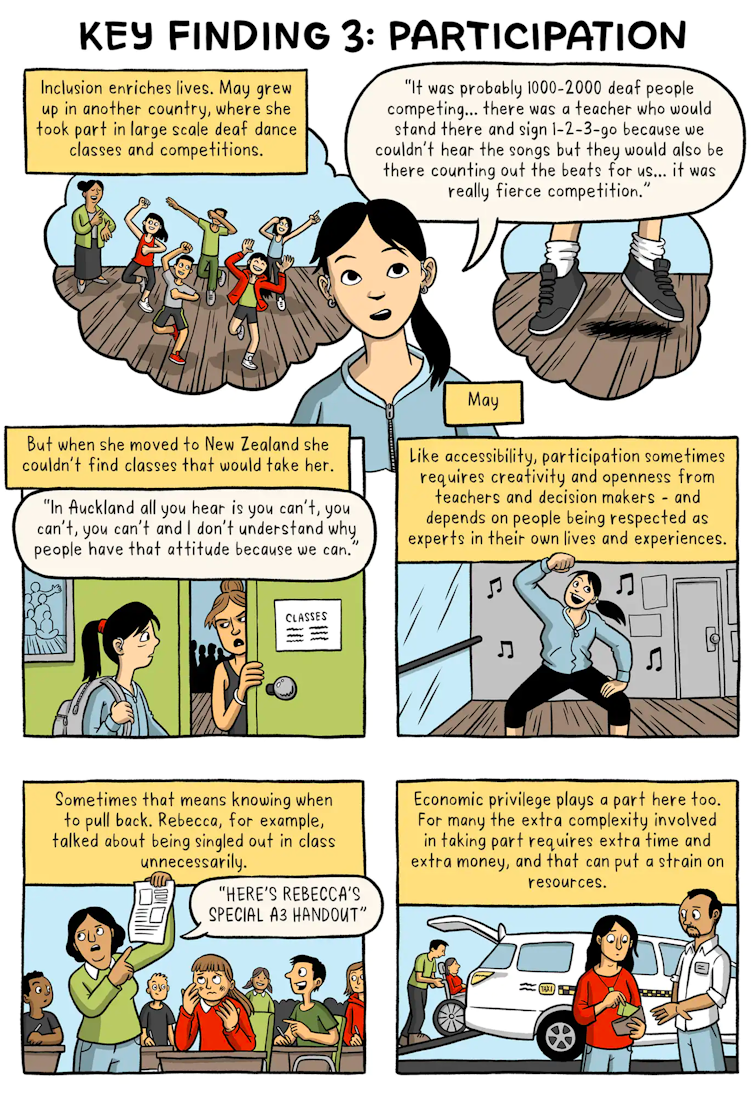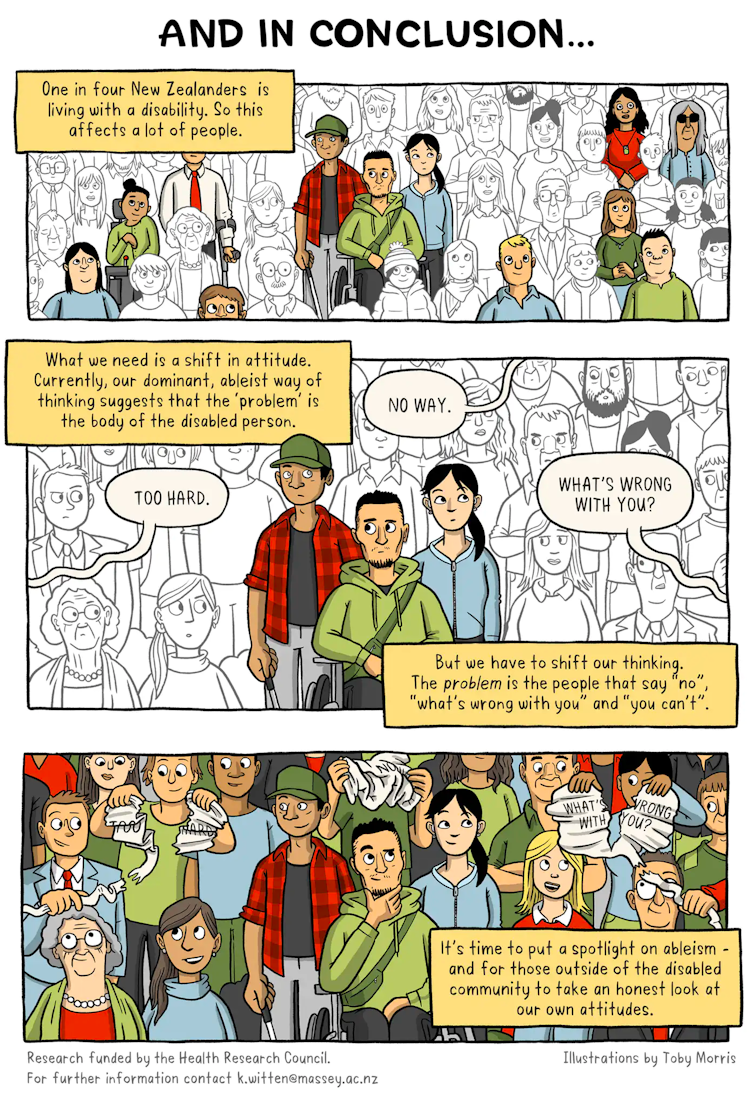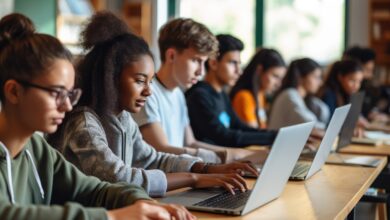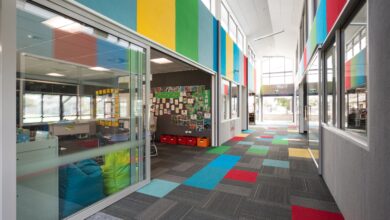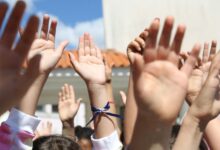Comic explainer: young disabled New Zealanders on the barriers to a better life

Our research project explored the everyday lives of disabled young people, aged from 12 to 25 years, with mobility, vision and hearing impairments.
We measured and asked them about factors that enabled or constrained their opportunities to fully participate in community life, including education, employment and recreational activities.
With support from participants and our research advisory group of young disabled people and their whānau (extended families), we have collaborated with graphic artist Toby Morris on a comic to highlight participants’ accounts of everyday ableism they encounter. We hope this comic will invite and challenge able-bodied people to think and act differently.
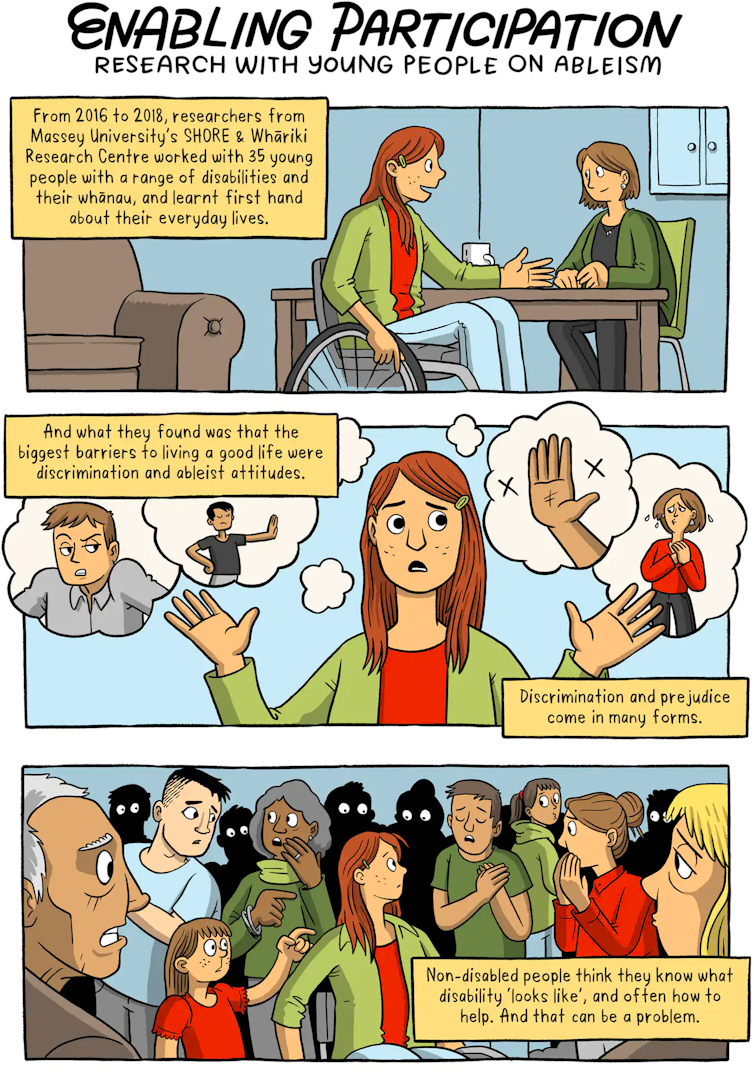
The benefits of participation in community life are well documented. It promotes a sense of belonging and identity, develops networks of support, and enhances social and economic opportunities. Lack of participation has profoundly negative implications for well-being and opportunities.
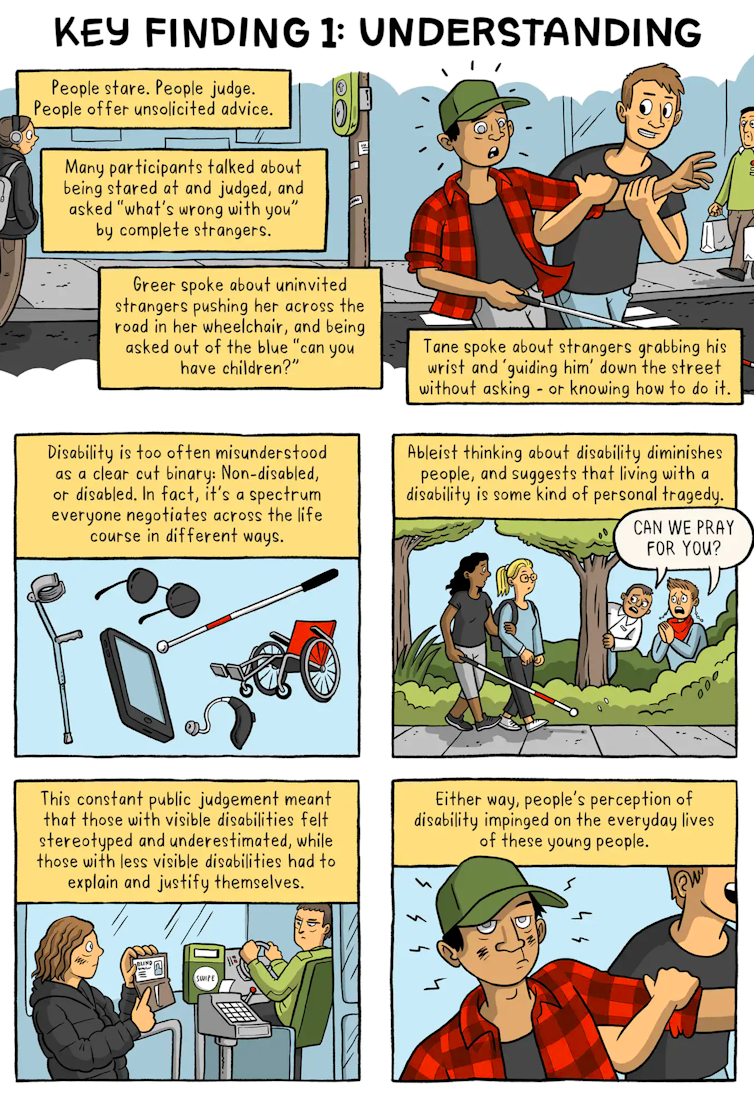
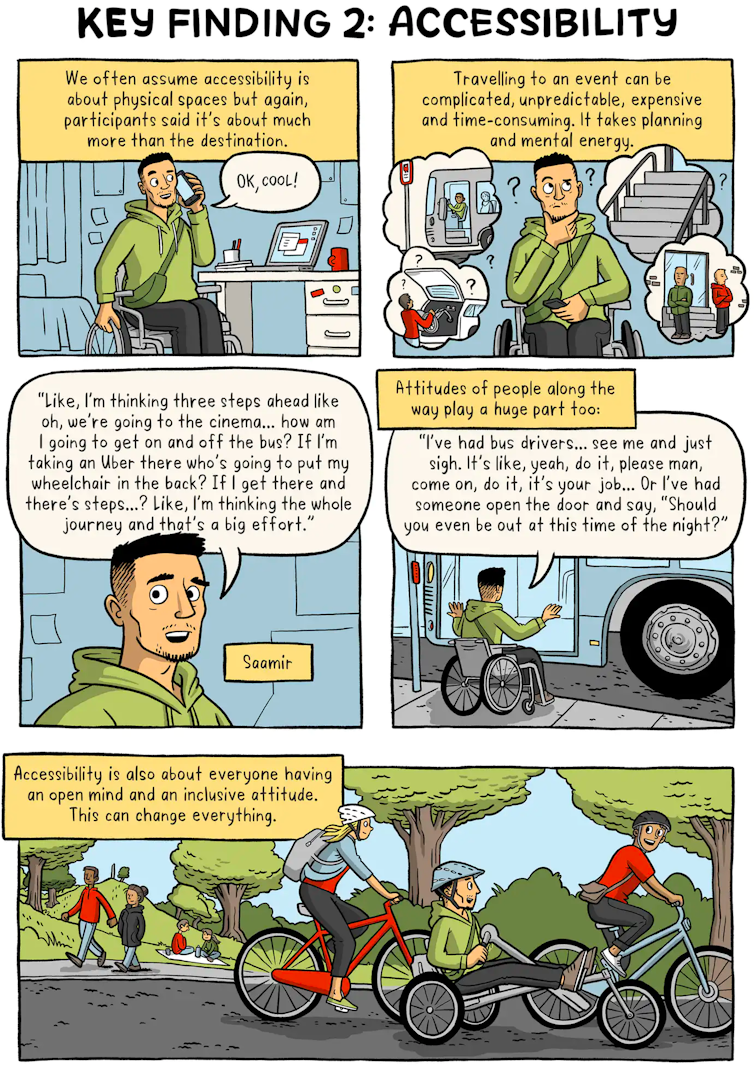
In Aotearoa New Zealand, one in four people are disabled. As elsewhere, they have lower levels of participation compared to their non-disabled peers. Urban environments are structured from ableist perspectives to work well for “ableds” who fit hypothetical norms of movement, sight and hearing. They presented numerous obstacles to participation. But participants identified discriminatory ableist attitudes as a greater constraint on their community participation than physical barriers. ![]()
